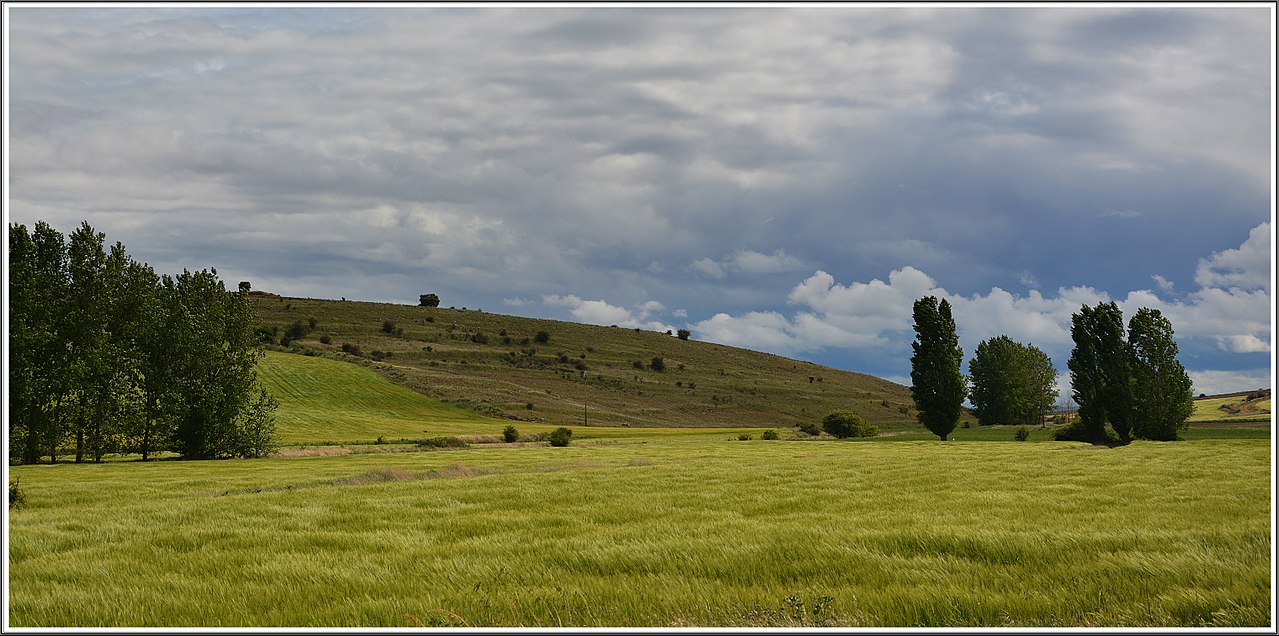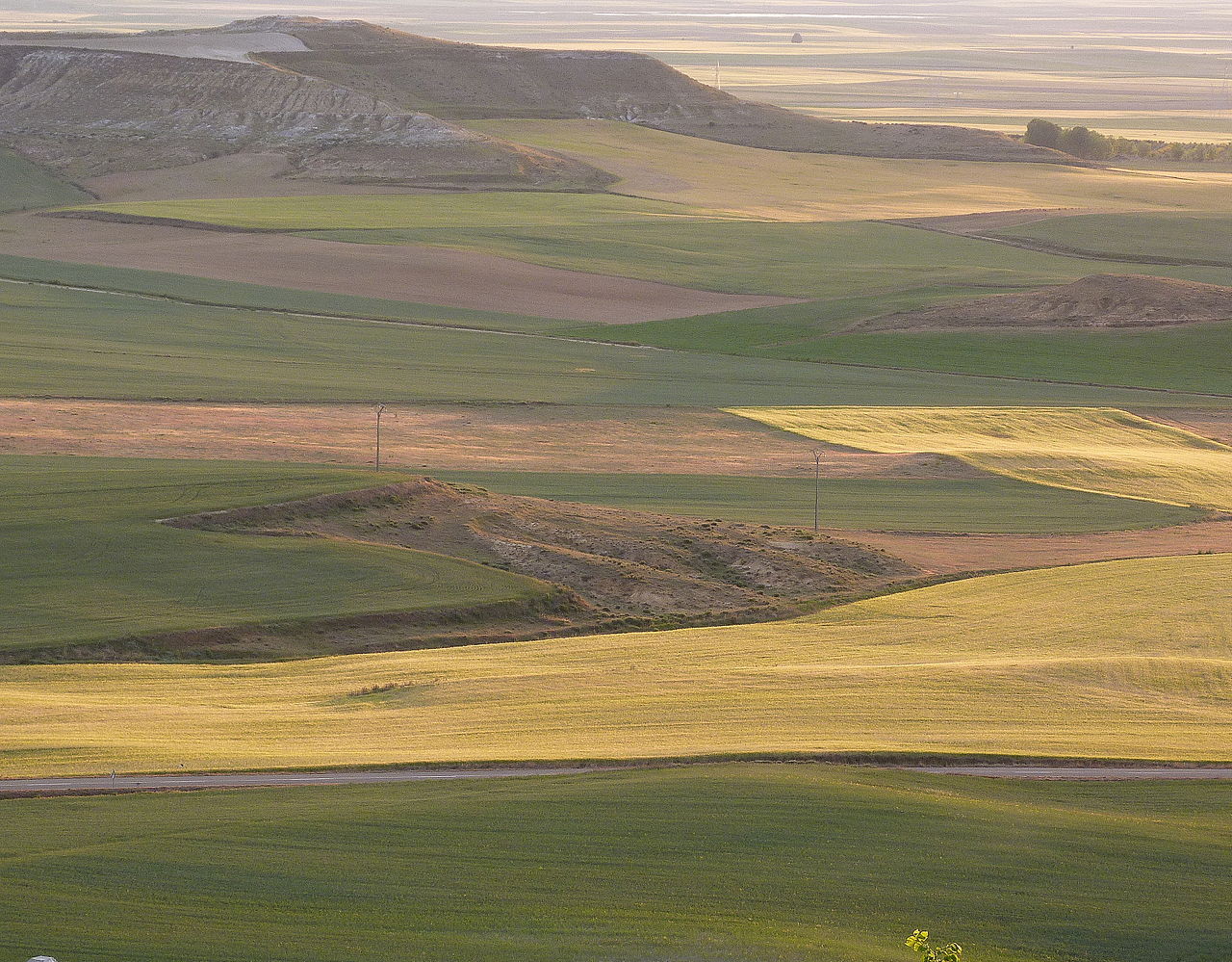
"Campos de Castilla" It is the best known work of the brilliant Sevillian poet Antonio Machado and it was published in 1912, although it was later expanded five years later, in 1917. In this work the images are more real and less symbolic than in the previous books of this The author and the landscapes say a lot about the writer himself, the human race in general and the history of Spain.
In fact the decadence of the country it is felt in the meditative descriptions that the author makes of some places or even of the character of some people. The mysteries of life or even religious sentiment are other themes in a fairly deep book in which Machado completely uncovers his soul to reveal everything that worries or haunts him in a fairly clear way.
The death of his beloved Leonor it is felt in seven of the poems that make up the book. In addition, the otherness and the perspective give rise to exquisite and ingenious puns that are represented especially in the "Parables". The "Proverbs and Songs" are formally close to Eastern philosophy in terms of their brevity and sententiousness, sometimes reminiscent of Japanese or Chinese poems.
Also in the book there is a fairly extensive romance called "The land of Alvargonzález", of a narrative nature in which the miseries of man are shown, in a story in which ambition and greed do not understand brotherhood.
Finally we will say that in addition to roads, rivers and seas are two of the main Symbols of the work, being the rivers life and the seas synonymous with something absolute and unlimited in what some critics have believed to see the figure of God.
Location of Campos de Castilla
The situation of the Campos de Castilla work takes place in Castilla, specifically in a village, Vinuesa and Muedra, near Cidones. In fact, there are several cities mentioned, especially by the younger brother who is the one who has traveled the world and returns home again. The exact time in which the story takes place is not known, but it does offer us a historical part in which it is lived based on submission, customs and conservative life. In her, honor and honor are two very important feelings that define people.
In addition, the author suggests that the actions of men may be influenced by comments or conversations with their women, hence the doubts about exactly who was the idea of ending the father of the family.
Throughout history, the event that has occurred in some way transforms the characters in the play, shaping their way of being and adapting to what they have committed.
How Antonio Machado Campos de Castilla writes
Campos de Castilla is written in the third person. It has a narrator who is the one who tells the story without giving any opinion or feelings about what is happening, although when what he writes is reviewed, he is expressing what he feels in a veiled way.
The sentences are short and very cultured. Except descriptions, everything else seeks to say a lot with few words. This is because it is a work in verse, so it had to be governed by the metrics of a romance.
At first, the plot of the story is impressive and fast, but the author did it to get exactly to the murder since, from there, the entire work is focused on that murder and the consequences it has for the characters.
As for the work, it is divided into 10 sections, each one titled in a way serving as a prelude to tell what is going to be narrated in each of them.
The characters of Campos de Castilla
The work of Antonio Machado It is quite short, however, that does not prevent that there are several characters that are noteworthy and that it is convenient to know, not only on a physical level (something that does not describe too much), but more internally, to know what moves each one .
Thus, among them are:
ALVARGONZALEZ
This is undoubtedly the protagonist of the first part of the work, and also the father of other characters. It does not mean that it only appears in the first, but that it also appears in the second part, but in a spiritual or even ghostly way.
The personality that the author gives to Alvargonzález is that of a man who seeks to do everything possible so that his family is well and do not lack anything. For him, family is the most important thing. In addition, we are talking about an honest person and in love with his family.
Wife
Alvargonzález's wife does not have a very representative role in Campos de Catilla, but is more secondary. In addition, as the story progresses, although it is seen at various times, the truth is that the author adds it to a sadness at the loss of her murdered husband.
Of course, this can also be seen in another way, since if before we said that Alvargonzález was a man who gave everything for his family, and was in love, the fact that his wife lost him could also be interpreted as that he had lost his meaning of life, to the person he has loved and loved so much, who does not know how to go on without him.
Juan
Juan is the eldest son, the firstborn. But also one of his father's killers. Despite the affection that this gave him, the author already represents a character with whom you do not have a good first impression. He talks about him describing him with a bushy brow and with very little morals.
Throughout history, this character suffers his cruel fate, somehow Antonio Machado leading him towards the saying "whoever does it, pays for it."
Martín
He is the second son of Alvargonzález, and also another of his father's murderers. Again, Machado presents an "ugly" character with whom you are not sympathetic but rather suspicious. With elusive eyes and doubtful morals, it has the same ending as the previous one.
Miguel
Miguel is the youngest son of the family. Until that moment, he has not lived with them but, after a discussion about his future, since he did not want to be a monk, he leaves home. When he returns, things go into action.
Daughters-in-law
In this work, also the wives of the children have some relevanceBut they are just accessories with the same personalities as their own husbands. In fact, the author does not give them much voice or vote.
What does the author want to convey as a conclusion?
Campos de Castilla is not just a play in which a murder is told. It talks about a story whose center is murder, but also that there is divine justice, that is, if someone does a bad deed, sooner or later there will be a punishment for it.
Thus, we could say that Campos de Castilla is an example of the typical phrase «who does it, pays it», where after the murder, the murderers themselves end up taking their own medicine since they do not achieve what they wanted at first .
However, Machado not only focuses on this issue, but also speaks of others, in a perhaps more veiled way, such as the "love sickness" on the part of the mother who, upon losing her husband, becomes sad ; or envy and jealousy on the part of the children that provoke the murder of the father.
Even in the end, the author speak of regret for what they have done.
Why you have to read Campos de Castilla
Campos de Castilla is a book that tries explain how any kind of act, good or bad, has consequences. The most striking is undoubtedly the murder of the father at the hands of his own children, and how these are "executed" finally by a "divine justice."
However, it goes unnoticed how the story of the youngest son changes. He leaves home because he wants to follow his heart and his father decides to give him his inheritance to do whatever he wants. Thus, he goes to see the world and returns, not poor, but happy and enriched in terms of culture and happiness. Therefore, also those actions that are good, have their reward in the book.

It seems to me that I should have a little more depth in terms of the analysis of this collection of poems that completely moves away from Modernism to make way for the Generation of '98 through simple language and addressing problems facing the DECADENCE OF SPAIN